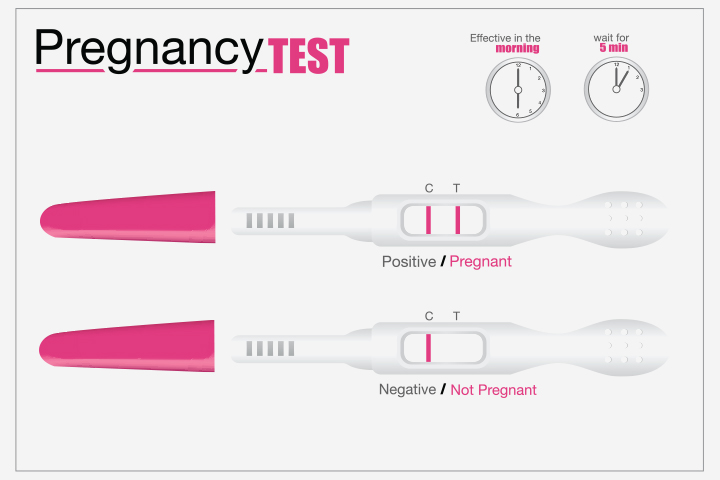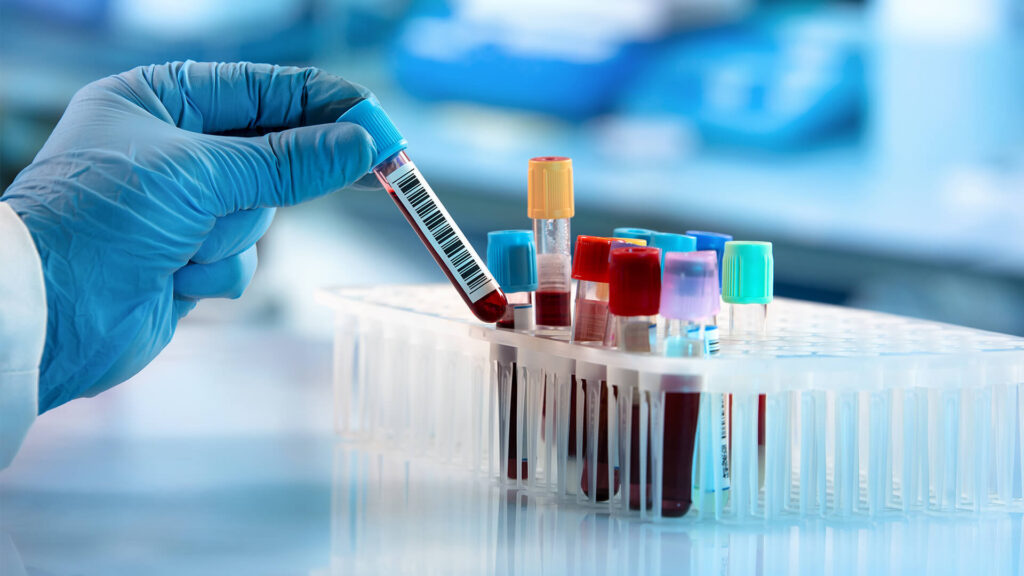A pregnancy test can tell whether you are pregnant by checking for a particular hormone in your urine or blood. The signs of early pregnancy can vary from woman to woman. You may feel your body making changes quickly (within the first month of pregnancy) or you may not notice any symptoms at all.

Symptoms of early pregnancy can include a missed period, an increased need to urinate, swollen and tender breasts, fatigue, and morning sickness. The hormone is called human chorionic gonadotropin (HCG). HCG is made in a woman’s placenta after a fertilized egg implants in the uterus. It is normally made only during pregnancy.
When can I take a pregnancy test?
Because it takes time for the hormone HCG to build up in your body, it’s often best to wait till you miss your period before taking a home pregnancy test. Before this point, the test may come up negative, even if you are actually pregnant.
Could I have the symptoms of early pregnancy and not be pregnant?
Many of the symptoms of early pregnancy overlap with other medical conditions, as well as your typical menstrual cycle. Premenstrual symptoms can be very similar to pregnancy symptoms. This can make it difficult to tell the difference. You can also miss a period without being pregnant. This can happen when you exercise in extreme amounts, lose or gain a lot of weight, or even are stressed. Breastfeeding can also cause your period to stop for a while.
The best way to know you’re pregnant is to take a pregnancy test. If you have missed a period and think there’s a chance you could be pregnant, consider taking a test.
Blood test:
Pregnancy test based on urine samples are so accurate these days that blood tests are rarely used to confirm pregnancy. Blood pregnancy tests used by doctors are estimated to be more than 99 percent accurate and will test for the presence of HCG. Some tests will check the level of HCG, which may give an indication of how far along the pregnancy has progressed. A blood sample is generally sent to a pathology laboratory and results available in a day or two.

Common early pregnancy symptoms can include:
- A missed period: The most common and clear-cut sign of pregnancy is a missed period. Once conception has happened, your body produces hormones that stop ovulation and the shedding of the lining of your uterus. This means that your cycle has stopped and you won’t have a period again until after the baby is born. However, missing your period isn’t always a sign of pregnancy. You can also miss your period from stress, excessive exercise, dieting, hormone imbalances, and other factors that might cause irregular periods.
- Fatigue (feeling tired): Many women feel extremely tired in early pregnancy. This sign of pregnancy happens because of high levels of the hormone progesterone. Similarly, to other early pregnancy symptoms, fatigue tends to get better in the second trimester. However, it does come back in the third trimester for many women.
When should I call my doctor about a new pregnancy test?
If you have missed a period, taken a pregnancy test and gotten a positive result, your next step will be to call your healthcare provider for your first appointment. While scheduling, your provider may ask if you have already started taking a prenatal vitamin with at least 400mcg of folic acid. These vitamins are important in early pregnancy because they help in the development of your baby’s neural tube. The neural tube will become the brain and spine. Many healthcare providers recommend that any women who could become pregnant take folic acid at all times.
If you are planning a pregnancy, a preconception appointment with your healthcare provider is a good place to start. A preconception appointment is especially important if you take medication for a chronic illness or have other medical conditions like diabetes, hypertension, or lupus.
